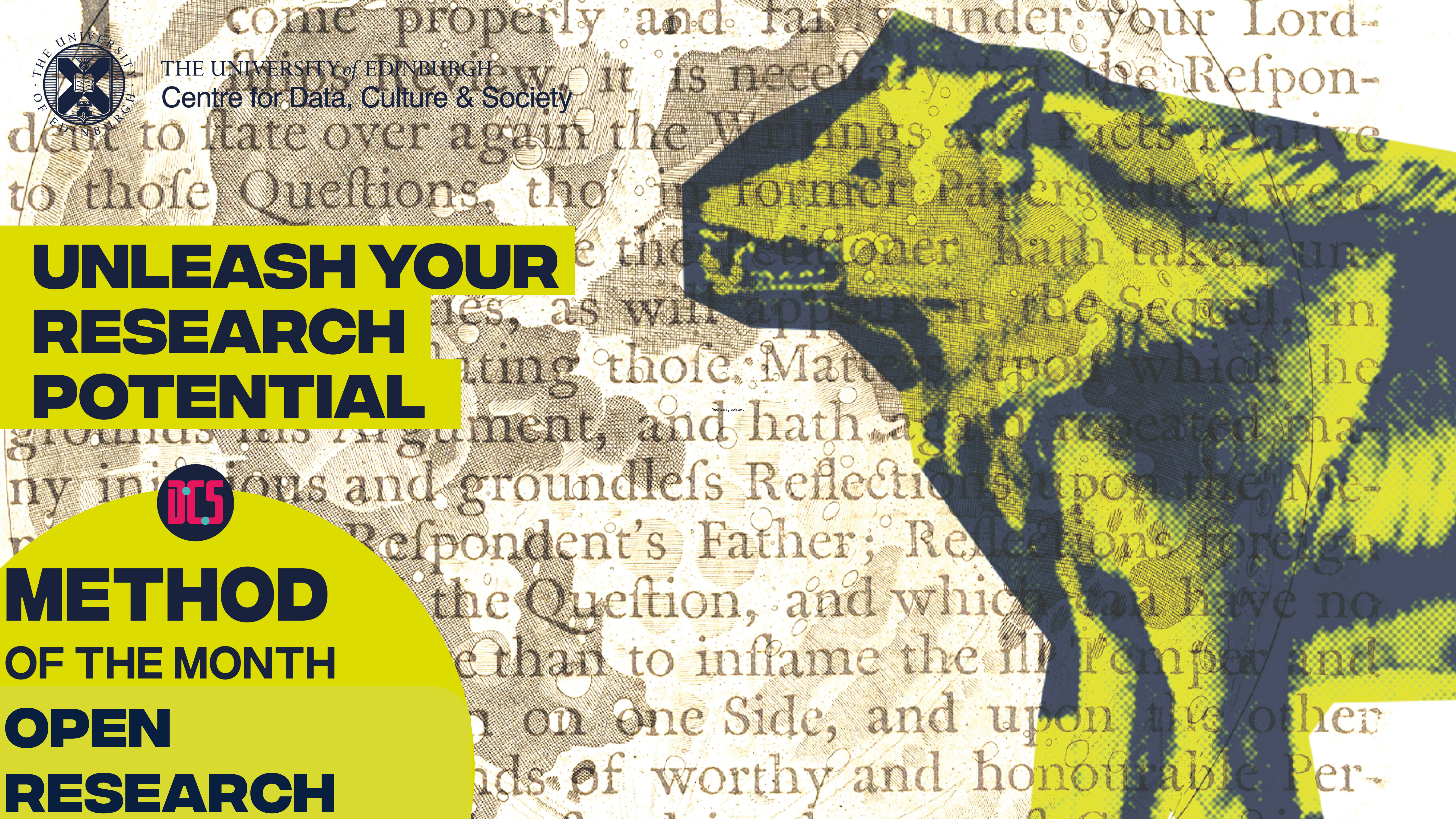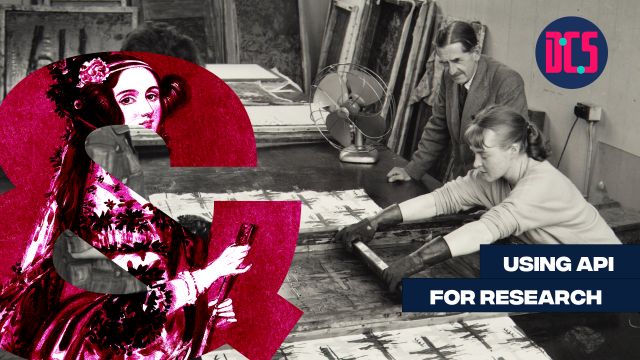Digital Method of the Month: Open Research

Online
Have you seen a presentation on digital research methods and wondered if they are applicable to your work? Are you interested in learning new digital skills but unsure where to start?
This is the right place for you!
The digital method of the month meeting is a safe space to freely discuss the practicalities of learning and implementing a new digital skill in your research.
Each month we select a method, and we have an honest and practical discussion on what it takes to learn and master it. How much time will it take to get the basics? What are the software options available? What are the most common pitfalls? Where can you find more info on the subject? Etc...
The method of this month is Open Research.
Are you curious about open research practices and wondering how to start? Have you been doing open research and looking for a community? Are you trying to figure out what resources are available for open-access publishing, pre-registration, and data sharing? We are here to help and support you.
In this event, we can provide help with: Open Access publication, open data FAIR principle, licensing, Pre-registration and registered reports, version control tools, institutional support on OA pub and open research data, incentives and barriers on open research practices, etc. We are looking forward to welcoming you!
Join us to discuss why you Open Research matters.
This is a beginner-level event, and no previous knowledge of the method is required.
To attend this event, you will have to join the associated Microsoft Teams group. The link to join the group will be sent to the attendees prior to the course start date, so please make sure to do so in advance.
If you’re new to this training event format, or to CDCS training events in general, read more on what to expect from CDCS training. Here you will also find details of our cancellation and no-show policy, which applies to this event.
This Digital Method of the Month is connected to the one on Pre-registration taking place on the 9th of May.
If you're interested in other training on good practice in digital research, have a look at the following:
- Copyright 101
- Silent Disco: Creating Digital Exhibitions with Omeka
- NFT (Non-Fungible Tokens) 101
- Make the Best of Your CV Formatting with LaTeX and Overleaf












